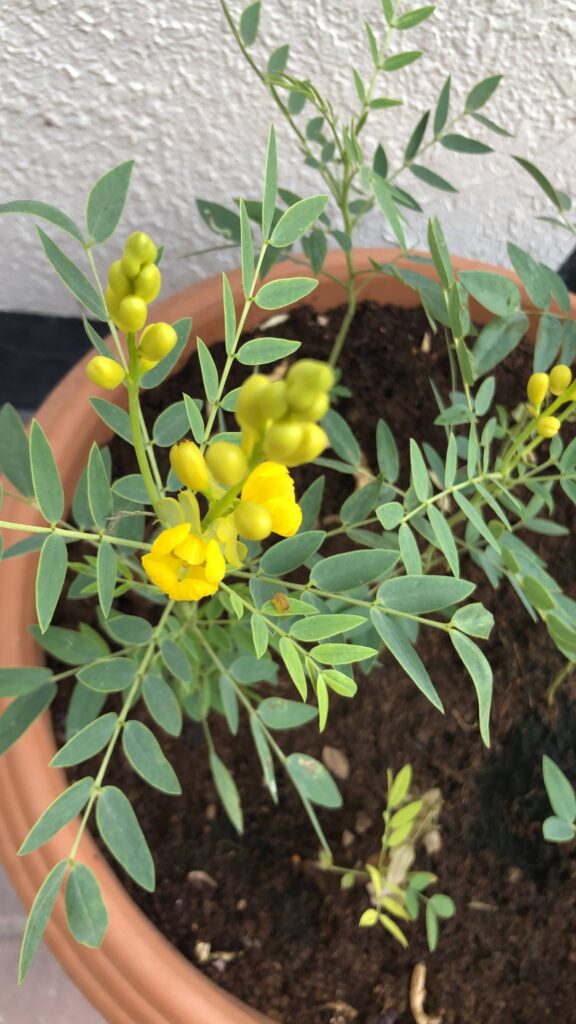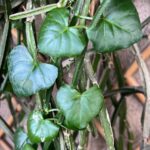The Senna plant is a pretty, drought-tolerant shrub that does well in the hot humid climates in the GULF. It is great for borders and can be trimmed and shaped. Normally you will see it planted on the roads etc in the region as it tolerates full sun and flowers prettily with yellow flowers until about June. A shrub can last up to 3 years but it is normally treated as an annual as it is fast-growing.
The story of my Senna plant goes like this. I was intrigued by the shrub on the roads and asked my friend about it. she said it is a common enough plant and I will give you a sapling. And so she did along with seeds. But neither the sapling nor the seeds took and I was left a little disappointed. Then one evening as we waited for our bi-monthly Shwarma takeaway, I noticed the shrubs along the roadside had many seed pods. I snuck out to the great disgust of my husband and the unbridled glee of my child and stole a few seed pods from the bushes.
Those seedpods yielded 4 saplings and they now have flowered and have their own pods.
This plant is used as a laxative for thousands of years and is heavily cultivated in India. It widely occurs through tropical Africa to Arabia and the Indian Peninsula. Although it grows in semi-desert scrub and grassland it can be found from sea level to elevations of 1300 meters.
It prefers a deep, well-drained, moderately fertile sandy loam and a position in full sun. Germination is hampered by salinity but older plants are salt-tolerant. Senna alexandrina does not tolerate continuous waterlogging or heavy irrigation. Therefore it is ideal in the GULF and lasts well even through summer. However, since it is fast growing it is better to treat it as an annual. Plant at the end of August or early September and you will have blooms by November. It works well as a hedge and blooms continuously until about June. Make sure you soak the seeds for at least 12 hours before planting as the germination rates are poor.
The leaves and pods have been used as a laxative and purgative since ancient times and remains an important treatment in both traditional and conventional medicine. Lately though medical practitioners are advising against over usage of the herb as prolonged longterm use can cause severe ulcerative colitis.
The plant is also used traditionally to treat a number of other conditions.
A decoction of the pods is drunk to get rid of intestinal worms and to cure difficulties in breathing. An infusion of the pods is recommended as a purgative for pregnant women and also to suppress fever. An infusion of the leaves is drunk to overcome flatulence and convulsions and to stop nosebleeds. But please consult an expert herbal practitioner before trying to use these remedies at home.
I just love the cheerful yellow flowers. They make me smile.







Recent Comments